第60章 DEFINITIONS OF THE EMOTIONS(4)
XXX. "Honour" (gloria) is pleasure accompanied by the idea of some action of our own, which we believe to be praised by others.
XXXI. "Shame" is pain accompanied by the idea of some action of our own, which we believe to be blamed by others.
^^^^^Explanation--On this subject see the note to III. xxx.
But we should here remark the difference which exists between shame and modesty. Shame is the pain following the deed whereof we are ashamed. Modesty is the fear or dread of shame, which restrains a man from committing a base action. Modesty is usually opposed to shamelessness, but the latter is not an emotion, as I will duly show; however, the names of the emotions (as I have remarked already) have regard rather to their exercise than to their nature.
I have now fulfilled the task of explaining the emotions arising from pleasure and pain. I therefore proceed to treat of those which I refer to desire.
XXXII. "Regret" is the desire or appetite to possess something, kept alive by the remembrance of the said thing, and at the same time constrained by the remembrance of other things which exclude the existence of it.
^^^^^Explanation--When we remember a thing, we are by that very fact, as I have already said more than once, disposed to contemplate it with the same emotion as if it were something present; but this disposition or endeavour, while we are awake, is generally checked by the images of things which exclude the existence of that which we remember. Thus when we remember something which affected us with a certain pleasure, we by that very fact endeavour to regard it with the same emotion of pleasure as though it were present, but this endeavour is at once checked by the remembrance of things which exclude the existence of the thing in question. Wherefore regret is, strictly speaking, a pain opposed to that of pleasure, which arises from the absence of something we hate (cf.
III. xlvii. note). But, as the name regret seems to refer to desire, I set this emotion down, among the emotions springing from desire.
XXXIII. "Emulation" is the desire of something, engendered in us by our conception that others have the same desire.
^^^^^Explanation--He who runs away, because he sees others running away, or he who fears, because he sees others in fear; or again, he who, on seeing that another man has burnt his hand, draws towards him his own hand, and moves his body as though his own were burnt; such an one can be said to imitate another's emotion, but not to emulate him; not because the causes of emulation and imitation are different, but because it has become customary to speak of emulation only in him, who imitates that which we deem to be honourable, useful, or pleasant. As to the cause of emulation, cf. III. xxvii. and note. The reason why this emotion is generally coupled with envy may be seen from III. xxxii. and note.
XXXIV. "Thankfulness" or "Gratitude" is the desire or zeal springing from love, whereby we endeavour to benefit him, who with similar feelings of love has conferred a benefit on us. Cf. III. xxxix. note and xl.
XXXV. "Benevolence" is the desire of benefiting one whom we pity. Cf. III. xxvii. note.
XXXVI. "Anger" is the desire, whereby through hatred we are induced to injure one whom we hate, III. xxxix.
XXXVII. "Revenge" is the desire whereby we are induced, through mutual hatred, to injure one who, with similar feelings, has injured us. (See III. xl. Cor. ii. and note.)
XXXVIII. "Cruelty" or "savageness" is the desire, whereby a man is impelled to injure one whom we love or pity.
^^^^^Explanation--To cruelty is opposed clemency, which is not a passive state of the mind, but a power whereby man restrains his anger and revenge.
XXXIX. "Timidity" is the desire to avoid a greater evil, which we dread, by undergoing a lesser evil. Cf. III. xxxix. note.
XL. "Daring" is the desire, whereby a man is set on to do something dangerous which his equals fear to attempt.
XLI. "Cowardice" is attributed to one, whose desire is checked by the fear of some danger which his equals dare to encounter.